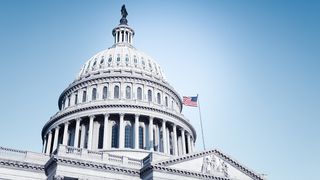The Alliance 21 team chose a dramatic week to be in Washington. Our researchers spent last week engaging with the US foreign, defence, and trade policy community, meeting with administration officials and congressional staff, and consulting with diplomats and business representatives. You'll see our insights and analysis in several publications scheduled for the coming weeks, but a few immediate takeaways are worth highlighting.
First, personality triumphs over process right now, especially when it comes to the formulation of US foreign and defence policy. Across the administration very few staff appointments have been confirmed, much less mooted, and that is slowing the flow of ideas and policy to the president as well as the capacity of the government to comprehensively manage multiple complex issues at once. The president's worldview is still evolving, and as the Syria strike showed, America's foreign policy is somewhat eruptive. Who has access to the president and the degree of their influence matters immensely, and so the Kremlinology approach to understanding the White House is feverish. It appears that more internationalist voices are gaining a slight upper hand in the president's inner circle - evidenced by the increasing role of figures like Jared Kushner and Gary Cohn. The generals - Secretary Kelly, Secretary Mattis, and National Security Adviser McMaster seem to be helming the administration towards a relatively more establishment course than expected.
That is not to say there is no deliberative process underway to resolve some of the thornier issues facing the new administration. The National Security Council's deliberations appear to have produced a nuanced review of the North Korean situation, the US-China summit has produced a new 100-day framework to deliver the trade and security outcomes President Trump seeks, as well as some quick concessions on US beef exports and investment into China. But the big wins promised during the campaign, and in the past three months, on these issues (and for that matter ISIS) seem more elusive.
The politics in Washington remain savage and intractable, the success in confirming Justice Gorsuch incongruent to the stalled talks on healthcare, and surprisingly pessimistic assessments I heard on the prospects for infrastructure and taxation reform. It also seems unlikely that there will be a material increase to the defence budget in the near term.
On the Washington side, the alliance has been inadvertently revitalised by the tough Trump-Turnbull phone call. Throughout our meetings came an acute sense that the bilateral relationship cannot and should not be taken for granted. Steps are being taken on Capitol Hill to more actively engage with Australia, and Vice President Pence is inbound this month to meet with our leaders, the business community, and military personnel. It's a good time to broaden the relationship beyond shared military activities and commitments, to a fuller spectrum conversation. We'll have more on that soon.






